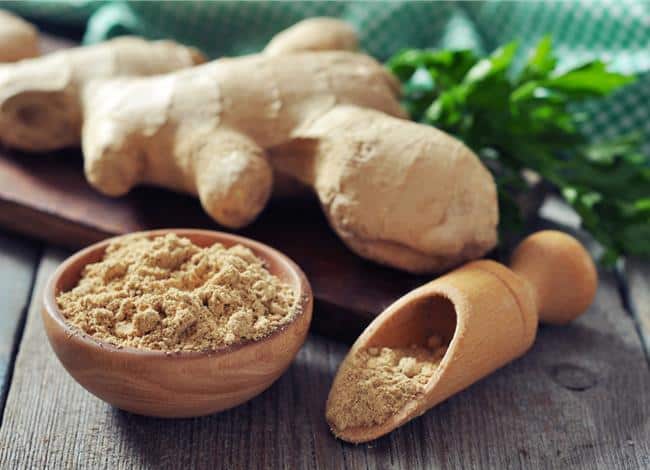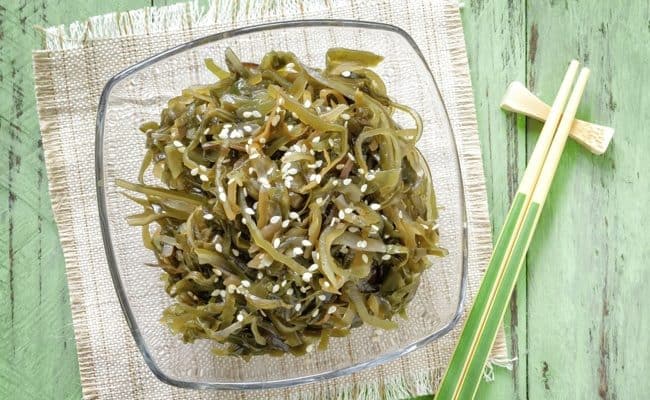
Spices have been used for centuries in various cultures as remedies and cures for health ailments. Spices are naturally high in antioxidants, which help lower inflammation in the body and have a wide benefit on health. Ginger is no exception, as research studies are concluding the many benefits ginger can have.
Ginger has been shown to lower pain associated with arthritis, exercise, migraines and menstrual cramps, and ginger may have a direct impact on soothing the stomach related to nausea and morning sickness.
Some evidence suggests ginger can help lower cancer risk, lower blood pressure and may have a respiratory benefit. However, more research is needed to show a stronger link with these conditions.
Soothing the stomach
Ginger’s most common association is probably with helping to lower the feeling of nausea. Many studies suggest that ginger has a significantly greater effect on lowering motion sickness when compared to a placebo group.
However, some studies also show that ginger is not as effective as motion sickness medications.
Ginger has been shown to be effective for reducing short-term morning sickness in pregnancy with the dose of 1 gram per day for 4 days or less at a time.
Before a pregnant woman takes ginger as a supplement, speak with a physician. Also, it is recommended to not take more than 1 gram a day of ginger.
Ginger’s positive effect on nausea related to chemotherapy or after surgery is not as strong and has shown some mixed results. Ginger may help with more generalized upset stomach symptoms, but there isn’t a lot of research to support this.
Lowering inflammation
Ginger is a rich source of various antioxidants. Having a diet high in antioxidants may help lower risk for various chronic diseases such as cardiovascular disease or cancer. Inflammation is associated with chronic disease development, so lowering inflammation in the body can help lower risk. Fruits, vegetables, nuts, olive oil and spices including ginger are all rich sources of antioxidants.
Possibly lower risk for colon cancer
A small study from the University of Michigan concluded that taking a ginger supplement of 2 grams for 28 days lowered inflammatory markers in the colon in participants who had colon cancer.
More studies are underway with ginger and its effect on inhibiting cancer cell growth and inflammation to validate this initial study.
Reducing pain
Another benefit of lowering inflammation is that it can help lower pain. A byproduct of inflammation is usually pain as seen in arthritis. Some studies have shown significant results with ginger lowering pain associated with osteoarthritis.
Taking ginger extract may benefit people who suffer from pain with osteoarthritis, but it is not clear if ginger supplements can help lower pain as much as pain medications. Some research ginger may also help with rheumatoid arthritis, but more research is necessary.
Ginger can also help lower pain associated with menstrual cramps and migraines. Could ginger help lower pain associated with exercise?
According to one study from the University of Georgia ginger’s pain relief may even help with muscle pain caused from exercise. Research participants who took ginger supplements for 11 days had less pain during an exercise test than participants who took a placebo.
However, more research needs to be done with ginger’s effect on muscle pain with exercise because not all studies have shown a clear effect.
Other benefits?
Ginger has been used as a remedy for many other ailments. For example, some studies also show that ginger may be beneficial for lowering blood pressure or protecting liver cells from damage.
As research studies continue, more health benefits will probably be found from ginger. As interest in the health benefits from food and natural remedies instead of harmful drugs grows, the health benefit of spices like ginger will continue to unravel.
Health authorities and researchers are hesitant to claim “proven” benefits for any supplement or food because there are numerous factors that contribute to disease states.
Also, one study does not “prove” a health benefit. Many studies should show a benefit before claims are made about a nutrient’s impact on health.
Precautions
Health professionals recommend getting a variety of antioxidants from different types of food in the diet. There is not strong evidence suggesting supplements work the same way as food as a source of antioxidants.
You can take ginger as a supplement, but simply adding real ginger to your diet may give other benefits not found in a pill.
If you decide to take ginger as a supplement and are on medication or taking other herbs, speak with your physician first. There could also be a slight chance of having side effects such as mouth irritation, diarrhea or an upset stomach from taking large amounts of ginger. If you have gallstones or bleeding issues, speak with a physician before taking ginger.
Conclusion
Ginger is high in antioxidants and has been shown to help lower inflammation. This could translate into lowering risk for some cancers and cardiovascular disease. Ginger can help soothe the digestive tract and help with lowering nausea and morning sickness.
Ginger can help lower pain associated with arthritis, menstrual cramps and possibly even muscle pain from exercise.
As research studies continue to look at the benefits of ginger, more benefits are sure to be seen from this ancient, spicy root.
References used in this article










